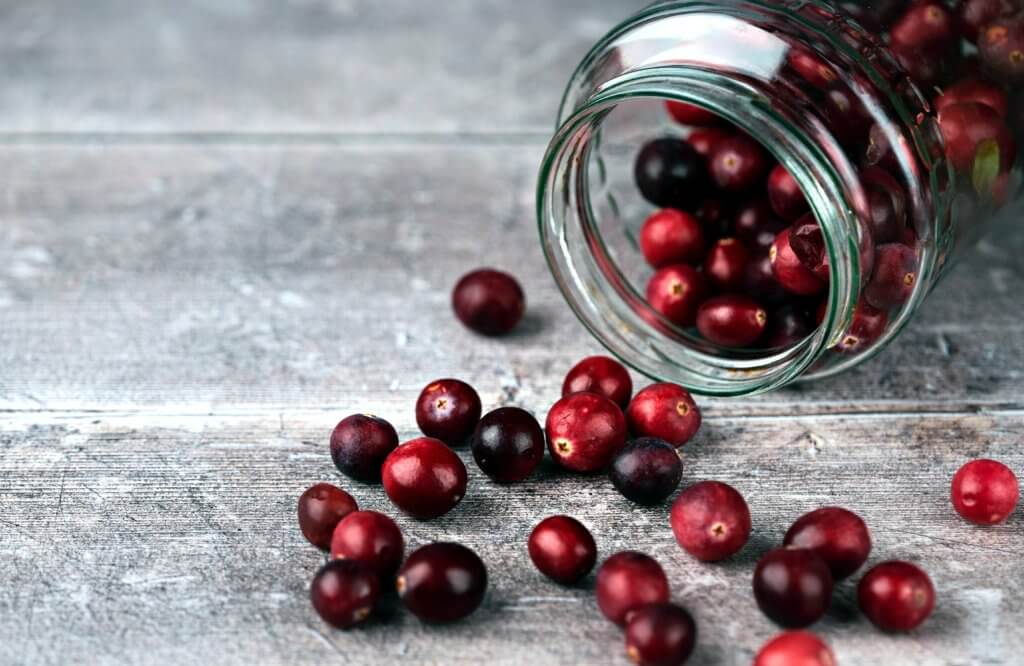A daily handful of cranberries can help strengthen memory and protect against Alzheimer’s disease and other dementia-related conditions, according to new research. British scientists reveal that the superfruit, most often eaten with turkey on Thanksgiving, boosts recall by increasing blood flow to the brain.
Researchers at the University of East Anglia in the United Kingdom say people who ate a small bowl a day had better memory after just 12 weeks. Scans show that more blood was flowing to the brain, which increases cognitive abilities.
The volunteers also had 9 percent less “bad” cholesterol — low density lipoprotein (LDL) — which can block blood vessels.
The number of dementia patients worldwide is set to triple in the next three decades. There is an increasing focus on behaviors that are protective.
“Dementia is expected to affect around 152 million people by 2050. There is no known cure, so it is crucial we seek modifiable lifestyle interventions, such as diet, that could help lessen disease risk and burden,” says lead researcher Dr. David Vauzour, from UEA’s Norwich Medical School, in a statement. “Past studies have shown higher dietary flavonoid intake is associated with slower rates of cognitive decline and dementia. And foods rich in anthocyanins and proanthocyanidins, which give berries their red, blue, or purple colour, have been found to improve cognition.
“Cranberries are rich in these micronutrients and have been recognized for their antioxidant and anti-inflammatory properties,” he continues. “We wanted to find out more about how cranberries could help reduce age-related neurodegeneration.”
Doctors recommend eating cranberries raw or blended rather than consuming them in juice, which is often laden with sugar. The sharp taste, which puts many off, is diluted by eating them with breakfast cereals or other foods.
The study — which, importantly, was funded by The Cranberry Institute — involved 60 mentally fit 50 to 80 year olds, half of whom consumed freeze-dried powder equivalent to 100g of fresh cranberries, daily. Dramatic improvements in remembering everyday events were identified in the fruit group.
They also had superior neural functioning and blood supply, or brain “perfusion.” This was compared to peers given a placebo.
“We found the participants who consumed the cranberry powder showed significantly improved episodic memory performance in combination with improved circulation of essential nutrients such as oxygen and glucose to important parts of the brain that support cognition – specifically memory consolidation and retrieval,” says Dr. Vauzour. “The cranberry group also exhibited a significant decrease in LDL or ‘bad’ cholesterol levels, known to contribute to atherosclerosis – the thickening or hardening of the arteries caused by a build-up of plaque in the inner lining of an artery. This supports the idea cranberries can improve vascular health and may in part contribute to the improvement in brain perfusion and cognition.
Cranberries are hailed a “superfood” due to their high nutrient content. They have been linked to combating urinary tract infections, heart disease and certain types of cancer.
“Demonstrating in humans cranberry supplementation can improve cognitive performance and identifying some of the mechanisms responsible is an important step for this research field,” concludes Vauzour. “The findings of this study are very encouraging, especially considering that a relatively short 12-week cranberry intervention was able to produce significant improvements in memory and neural function. This establishes an important foundation for future research in the area of cranberries and neurological health.”
The study is published in Frontiers in Nutrition.
Report by Mark Waghorn, South West News Service













100g daily of cranberries to improve mental health means eating 90 cranberries every day. This is another unrealistic study by “medical” researchers attempting to get their names published and to sell their products. How much cranberry powder was used, I don’t know, but I have read similar studies that claim these types of benefits, and usually the fine print of the study shows that massive unrealistic amounts of fruits and vegetables are used to get achieve minimal improvements in health.
What about dried cranberries?
So doctors don’t recommend cranberry juice due to juice being often “laden with sugar”.
WHAT IF the juice has no sugar added? Would that be AS beneficial as eating whole cranberries. Seems like a fairly simple question that could have been asked. Lazy journalism.
My questions is would consuming the craisins (dried cranberries) do the same thing, and how much would you have to eat daily to get the same effect?
I take 2 Cranberry soft gels with 4200mg in each soft gel. It is more convenient than taking Dried or Fresh Cranberries. I find Cranberry juice to be too bitter to take on a daily basis.
Of course! This is the way to get the required equivalent. Go to your local health food store.
Brought to you by the American Cranberry Growers Association.
We’ve heard and read that blueberries have the same properties.